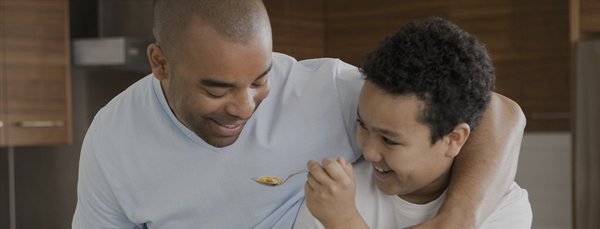Info For - Corporate Partnerships
Info For
Corporate Partnerships
Our Partners Bring Great
Ideas to the Table
We can't do it alone. OnlineParentingPrograms.com believes in the power of partnerships and collaborative efforts and has a rich history of working with educated professionals. As OnlineParentingPrograms.com takes on some of the most difficult family issues, the need for new alliances will multiply. The varied cultural backgrounds, history and experience that our partners bring to the table will challenge us and strengthen our effectiveness in finding solutions.
OnlineParentingPrograms.com’s online parenting classes consist of more than 20 contributors, including professional staff members located in multiple regions across the globe. It is because of our contributors and varied job responsibilities, we are able to create exceptional programs and we are dedicated to helping families in transition.
In turn, OnlineParentingPrograms.com supports companies that aim to strengthen their commitment towards providing innovations and program solutions for children and families in transition. We believe that in order to solve the toughest problems, we need to listen to all stakeholders and find common ground — because the only way we may be able to make a positive difference is by working together.
Year in Review
We succeed by tapping the knowledge and
influence of others.
OnlineParentingPrograms.com is pleased to partner with New Ways for Families®, The High Conflict Institute and HCI Press to now provide comprehensive high-conflict co-parenting programs. Through this partnership OnlineParentingPrograms.com demonstrates its ongoing commitment to parent outcomes and to transparency. These online programs help parents strengthen conflict skills to come up with personal strategies for solving problems and focuses protecting children from as their family reorganizes in new ways.
New Ways for Families® and OnlineParentingPrograms.com have teamed together to provide online parenting resources to families across the globe. New Ways for Families® was released in 2009 as a project of the High Conflict Institute, led by author and speaker, Bill Eddy, LCSW, Esq. who created the program.
New Ways for Families® is a skills-based method, built on evidence-based programs for people who have relationships disorders. Up to now, New Ways has been available in four models: court-based counseling, collaborative divorce, decision skills class, and pre-mediation coaching. New Ways emphasizes strengthening skills for positive future behavior (new ways), rather than focusing on past negative behavior – while still acknowledging it. It is designed to save courts time, to save parents money, and to protect children as their families re-organize in new ways after a separation or divorce, for married or never-married parents.
We bring about lasting change through communicating with those closest to the problem. If we want to protect families for coming generations, we need help from families in the dealing with the issues. Why? The U.S. Census Bureau reports divorce rates are around 41% BUT this does not consider factors such as same sex marriages and never married couples.
- In America, there is one divorce every 13 seconds. That’s 6,646 divorces per day, and 46,523 divorce per week.
- The average length of a marriage that ends in divorce is eight years.
- People wait an average of three years after a divorce to remarry (if they remarry at all).
- The average age for couples going through their first divorce is 30 years old.
- Seventy-nine point six percent of custodial mothers receive a support award, while only 29.6 percent of custodial fathers receive a support award.
- Forty-six point nine percent of non-custodial mothers totally default on support, while only 26.9 percent of non-custodial fathers totally default on support.
- About 1 percent of the total number of currently married same-sex couples gets divorced each year, in comparison to about 2 percent of married straight couples. (Note that the percent of couples that get divorced eventually is 50 percent, but only one or two percent get divorced in a particular year.)
Protect Yourself and Your Children From Domestic Violence.
CALL 911 for immediate assistance,
or your local emergency service.







